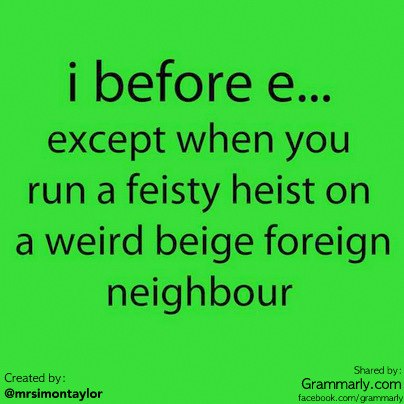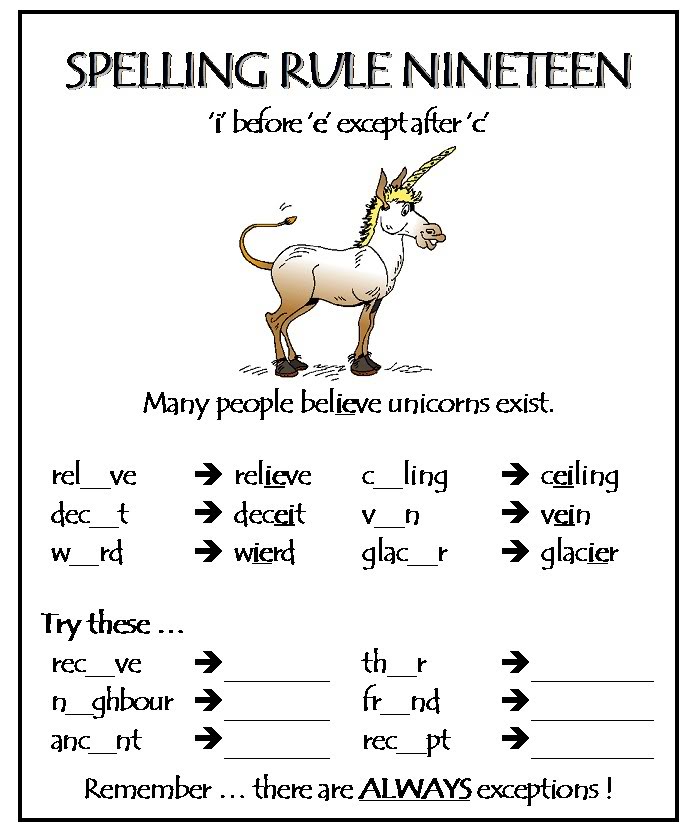

I had a folklore professor who was really old in the 70's already, and he had a collection of 78s (really old phonograph records, for the youngsters in the readership 🙂) of collected folklore and one was a woman telling a story about Sean the Giantkiller or some such. He asked us what we could tell about it just from the first few lines and my hand shot up (because it was prone to do so), but this one was GOOD, and very memorable for me. She was pronouncing Sean as the word for already having looked: "Seen." I said "She learned it from a book."
Right. So she didn't have that one from the oral tradition, but had jumpstarted from a written source.
I like this modern commentary on English, but when I look at it I really do appreciate how meaning is conveyed so much by the appearance of the words, in English:
|
Ode to the Spell Checker!
Eye halve a spelling chequer
Eye strike a key and type a word
As soon as a mist ache is maid
Eye have run this poem threw it (it was sent anonymously, like office humor) |
Kirby, the other day, was all het up about there being an apostrophe in Seasons Greetings or something on the window at the pizza place where he works. Or maybe it was Happy Holiday's. He really wanted it scraped off, but the management wasn't concerned. Kirby has never had a spelling lessons, just a few spelling conversations.
|
Alphabet dot-to-dot One skips letters, another goes backwards.
|
Someone on Facebook commented on the box below:
Daniel Midgley: I have to show this to an ageing atheist sheik. He's eighty.

"Weird" is weird.
"sounded as 'a'"
as in neighbor
and weigh,
neigh,
inveigh
"shunt" words:
ancient
coefficient
deficient
proficient
sufficient
efficient
"science" and lots of words ending in science
and two common ones that can also end in "cient":
omniscience and omniscient,
prescience and prescient
"Keith" (names in general)
neice
either
neither
protein
heinous
Another example:

Did you come up with two numbers? Divide nearly-1000 into two piles.
Think about how you're deciding this. 🙂
The answer is on this page. <----- Click away.







